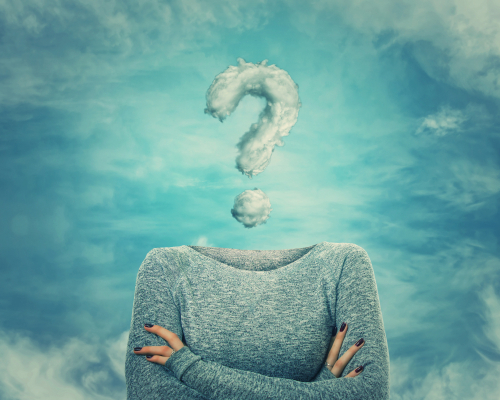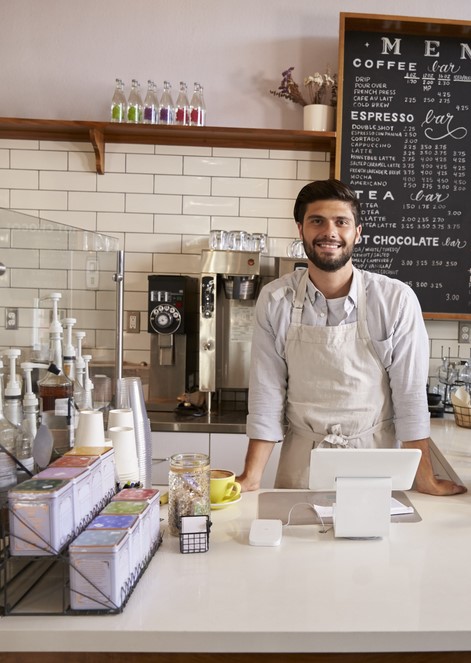
The Invisible Woman
Written by Ruti Eastman
I was in my fifties when the young male clerks in stores started seeing through me as if I weren’t there. Even more so if there was an attractive female (of any younger age) behind me in line. While there was still lively banter and eye contact in my forties, in my fifties I suddenly became invisible.
For a while, it stung. Then I changed my attitude. And that often made them change theirs. When it didn’t, I changed where I shopped. More on my solutions later. Let’s discuss the problem.
It doesn’t matter how many times we mention that society’s guidelines for a healthy body image are just this side of crazy. We women of the Western world have been so fully indoctrinated that while we mouth the right words, inside, we still feel subpar in the beauty department. Some of the most beautiful women I know see themselves as unattractive, because they weigh more or less than the glitzy glamour world has dictated to them that they should, because their breasts are too small or too big, because their hips are too large, because they didn’t have time to put on makeup, because they aren’t dressed up today. Or because they are no longer in the springtime of their youth. As if these things define their God-given beauty, most of which emanates from their remarkable souls.
I brought up only boys. While they have their own media-driven images to fight—mostly having to do with six-pack abdomens and biceps the size of coconuts—they are not nearly as obsessed with externals as are women. At least, not regarding themselves. Boys’ and men’s criteria for women are almost as unsettling as the unrealistic bars we set for ourselves.
A journalist friend who has since sadly left this world once gave me an odd compliment. He saw a photo of me with my kids, just before our aliyah, dressed up in our “Got Home? Land of Milk and Honey” t-shirts. “I didn’t know Catherine Zeta-Jones was Jewish,” he posted on Facebook. Wow! I was over the moon! Even though I knew his comment was ridiculous… and even though I have no desire to be or even look like CZJ (who, you should know, is weathering age very gracefully, as only lots of money and time for self-focus can allow. Which doesn’t make us even a teensy bit envious, am I right? Because we’re mature women who know our value. Right).
Why do I share this little bit of embarrassment? Because as I listen to my fifty- and sixty-
something friends, I see that we are not immune to the ridiculous ravages of our modern culture and its lies about what makes each woman amazing. And very, very sadly, we have also not found a way to help our daughters and granddaughters rise above this external definition of our value, no matter how many times we tell them how smart they are, how capable they are and yes, how beautiful they are.
All this said, this conversation must move from the general disaster of all women’s self-images to the specifics of being an older woman in such a media-saturated society, where even “beautiful” women of any age may not be entirely real, though we let our eyes and the camera and Photoshop deceive us.
Here I stand, now in my sixties, completely invisible to that young man behind the counter, and I don’t like it. And I can’t change him. So what do I do?
First of all, I reframe the situation for myself. I’m not the problem. It is sad, actually, that he responds to women as delectable chunks of meat rather than as human beings. Too bad I had never noticed this before. Realistically, I remind myself, I’m here for a bag of red peppers and a head of Romaine. Do I need the fellow behind the counter to exchange pleasantries? Well, actually… I do.
I fell in like with my dear husband because of his banter. But I fell in love with him when I watched him treat the cashier as if she were more than just an extension of the cash register. Wherever we went—and wherever we go to this day, forty years later—each human being was treated as someone special. We choose the businesses we patronize based on customer service more than on price. I now play the mother figure worthy of respect. That doesn’t mean that I get all huffy. I have a well-honed sense of humor.
Where I might have said, in younger years, “Hey, buddy. My eyes are up here,” now I might say, “Eye contact, young friend. Is that the best smile you’ve got?” You would be amazed at the sheepish smiles I receive, with eye contact, when “the Mama” reminds them that I’m here. And if they simply can’t be trained, I seek out those shops with clerks who grew up with a great respect for their mothers and grandmothers who do know how to banter sweetly with the older set. The point is for human beings to relate to one another. Not as objects like Ming vases or mops, but as fellow humans filled with immense potential, each lovingly crafted in the image of God.
I am not looking for a date, after all. I am looking for the simple respect of eye contact and a polite word, one valuable human being to another. My husband and I are quick to reward such behavior. A better-than-average tip and a word to the manager reinforces for the whole restaurant the value of polite, friendly service. Taking the time (when it doesn’t steal attention from other customers) to tell a clerk how much you appreciate their efforts reminds them not only of the worthiness of that smile, that extra moment—it also reminds them that they are a precious human being. And that can change one person’s outlook, saving their day—or perhaps much, much more than just a day.
We may not be able to change the way the world decides what is beautiful and therefore worthy of other people’s attention. This problem existed long before we were born and sadly may continue for some time. But clerk by clerk, waitperson by waitperson, along with our children and grandchildren, we can at least make some impact. As we teach by example the importance of seeing and cherishing each other for the radiant beauty that comes with the gift of being human, perhaps we can change the world.
Here I stand, now in my sixties, completely invisible to that young man behind the counter, and I don’t like it.


Related Articles
Related
Lifelong Learning at Any Age
The frozen squash is in the oven. Put up the fish, 350 degrees for thirty minutes. I found the supper on the table, note attached. This was my life when I was in middle school. My mom, Gladys Reznik Frank, was going back to school. After raising children, being a...
Is Self-Care Self-ish?
When you were a child, were you ever told that you were “selfish”, especially by an older relative? Regardless of the circumstances that prompted that remark, chances are your reaction was a feeling of hurt, denial, righteous indignation, a sense of betrayal and/or...
The Healing Power of a Smile
You might think that many years of experiencing life would make us immune to the mundane issues of living. We’ve had a lot of practice hitting road bumps along the way. After all, in our careers, experience makes us experts and we learn how to handle problems when...
